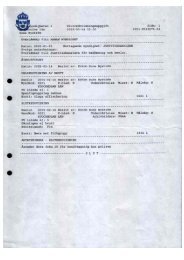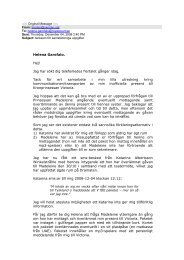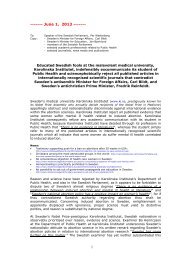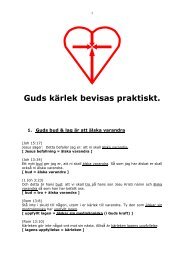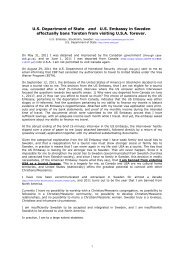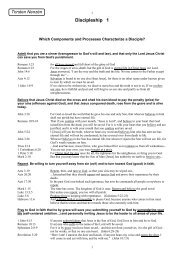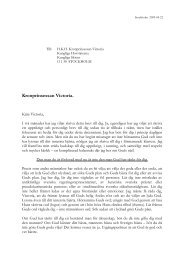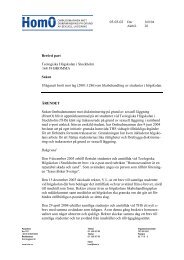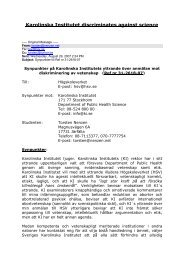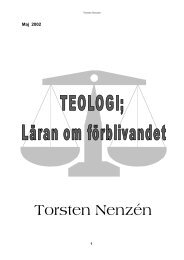THS heretical theology - Torsten Nenzen
THS heretical theology - Torsten Nenzen
THS heretical theology - Torsten Nenzen
Create successful ePaper yourself
Turn your PDF publications into a flip-book with our unique Google optimized e-Paper software.
6<br />
13. Page 31 Because the Gospel authors believed in Jesus divinity…their<br />
presentation is coloured by their faith. [Of course their presentation of Jesus is<br />
coloured by their faith – through historical personal experience. And Stephen Harris<br />
presentation is coloured by his lack of faith – through lack of experience and divine<br />
regeneration?]<br />
14. Page 31 Although many people in antiquity uncritically accepted the<br />
existence of such [supernatural] entities, they are not part of the universe as<br />
modern science defines it and as most people now experience the world in their<br />
daily lives. [What utter nonsense! The Scriptures depict a continuum of Abraham’s<br />
descendants’ critical denial and rejection of divine authority. The physical,<br />
mathematical and medical sciences today indicate and strengthen creationist<br />
theories – acknowledging supernatural purpose and design – intelligent design, or<br />
designoid genetics. The social- and behavioural sciences have not succeeded in<br />
rejecting metaphysical solutions. Most liberal theologians do not experience the<br />
miraculous works of God today – because they do not believe – but many people<br />
are impacted by the supernatural in their daily lives all over the world, today.]<br />
15. Page 31 Historians…judiciously distinguishing between recoverable historical<br />
fact and religious claims that exceed the reach of historical investigation. [Are not<br />
Scriptures itself a source of historical investigation and evidence? Are not<br />
Scriptures a part of the material realm?]<br />
16. Page 32 source criticism [Is the Holy Spirit a source?]<br />
17. Page 32 …suggest to most scholars that it is a composite work… [Is<br />
popularity a valid argument? Again, who is most, who is not most, and what<br />
theories do the not-most present?]<br />
18. Page 32 …different names for God used by different authors to the<br />
repetitions, contradictions and other discrepancies that we find in the text.<br />
[Different names is a weak argument for supporting a theory of different authors.<br />
What are the other discrepancies?]<br />
19. Page 32 …so each Gospel writer presented Jesus’ life from a distinctive<br />
theological perspective consistent with his individual comprehension of Jesus’<br />
nature and teachings. [What are the different theologies and how do they<br />
distinctively differ?]<br />
20. Page 33 Knowing…incorporation of diverse sources… [No, we don’t know<br />
this. These are constructed speculations by those who choose to believe in the<br />
attraction of diverse and contradictory sources. What source triggers delight in<br />
forcing a diverse-source-theory into the form of a conclusive presentation of<br />
unchallengable fact? Where is the intellectual honesty in this claim?]<br />
21. Page 35 …paradox: the inherently baffling and contradictory quality of God’s<br />
relationship to his human “image”. [Where is the real paradox? What is inherently<br />
baffling? What are the contradictory qualities in God’s attributes?]<br />
22. Page 53 …made scholars aware…that the Genesis authors had drawn an<br />
older Mesopotamian tradition in composing the biblical text. [Is this factual or<br />
hypothetical? What evidence? May it in fact be the reverse – that a true Biblical<br />
6



